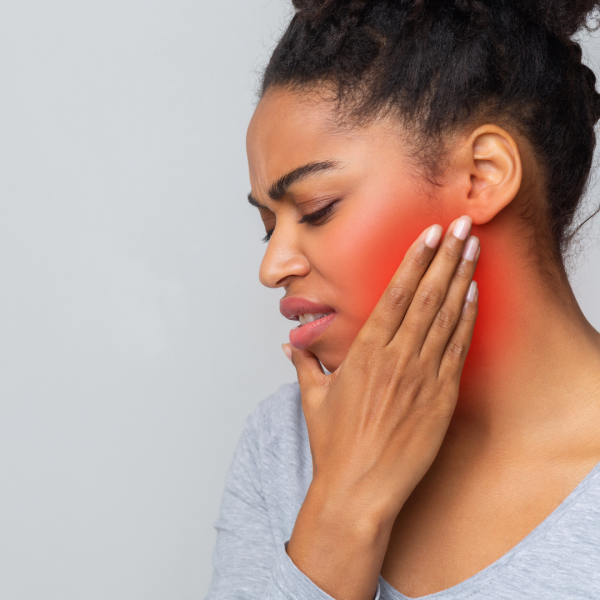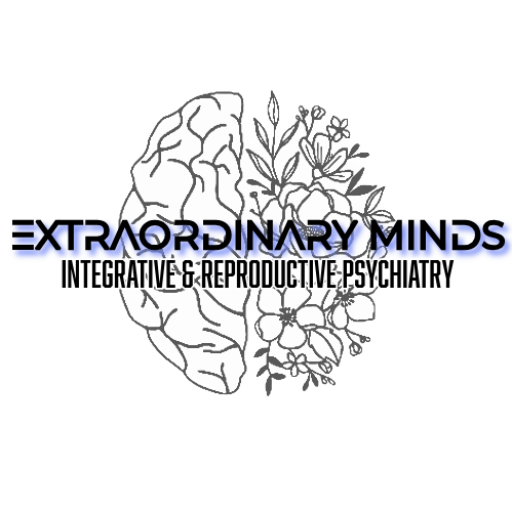Ten Proven Tips to Help Teeth Grinding
11/23/2024 by Dr. Rachel Dillinger, MD PMH-C, integrative and reproductive psychiatrist

Have you ever woken up with sore jaw muscles or a headache near your temple? Gone to eat breakfast and the pressure of biting down was uncomfortable? Caught yourself clenching your jaw during the day?
You might be grinding your teeth—a condition we call “bruxism.” It can run in families, pop up during times of stress, come from certain medical conditions (like Parkinson’s Disease), or be the result of exposure to certain substances or medications.
While the immediate effects are uncomfortable, grinding teeth can also result in chronic issues and costly dental work: chipped or cracked teeth, tooth sensitivity to cold or hot temperatures, wearing down of the enamel (protective covering over teeth), tinnitus (constant ringing in ears), popping or clicking noises in the joint in front of your ear, chronic headaches, and even jaw dislocation.
Before we get to the tips, it can help to understand why we grind our teeth in the first place. There’s a chemical in your brain called GABA (the one that says “stop, slow down”) that helps you sleep. When GABA is released, it turns on a part of your brain called the MTN (which controls your chewing muscles). This part of your brain also helps turn on the ARAS (an activating system that control things like your heart rate, breathing, and brain activity).
During sleep, everyone grinds their teeth. When they do, their heart rate and breathing rate pick up. Throughout the night, the MTN and ARAS work together to make sure your brain, heart, and breathing don’t slow down too much. Your brain may decide it is advantageous to be more or less awake based on a variety of factors. So our goal is to make your brain feel less threatened and minimize outside influences.
Here are 10 things that may help:
- Ease the pain: Over-the-counter pain relievers like Tylenol and Ibuprofen can help, but should be seen as a temporary aid since chronic use of both can cause issues. Using a cold or warm compress can also ease soreness. Breakfast choices like oatmeal, smoothies, and eggs are softer and require less assistance from your teeth or jaw muscles, making them more ideal than a bagel or breakfast sandwich.
- Minimize offending substances: Alcohol, caffeine and nicotine can all make teeth grinding worse. Limiting them can decrease it. Certain medications, like wellbutrin, prozac, and stimulants have a higher rate of teeth grinding as a side effect. Using a lower dose or comparable medication with a lower likelihood can help.
- Eliminate or reduce sources of stress: Since anxiety and stress tend to increase how often and intense teeth grinding is, make a list of stressors in your life and circle or highlight any that are “modifiable” and can be changed. Kids always making messes? Not totally modifiable. Kids in too many extracurriculars? Modifiable. Paying rent or mortgage? Not modifiable. Volunteering to lead a presentation when you have performance anxiety? Modifiable.
- Incorporate stress reduction techniques: Regular exercise, meditation, and yoga are a few proven ways to reduce stress. They can help to regulate the nervous system from a “bottom up” perspective, benefitting you even while you sleep.
- Mouth guard: Ask your dentist if a mouth guard may be effective for you. They can check if your insurance coverage covers it, get custom fitting ones, and/or suggest some direct-to-consumer brands that may be affordable alternatives.
- Myofascial facial massage: Regularly incorporating this can help with the muscle fatigue and tension aspects. You can see a professional or try an at-home guided one. My personal favorite can be found here.
- Acupuncture: Many insurance plans offer acupuncture coverage, and it can help with a wide variety of ailments, including bruxism.
- Supplements: Magnesium, vitamin B5, and vitamin C have all been shown to help reduce bruxism and relax muscle fibers.
- Buspirone: This medication can help to cut down on teeth grinding, particularly when taken at night. It can also be used for anxiety. Check with your medical team to see if it may be an option for you.
- Botox: Yepp, you read that correctly—botox injections into the muscles around your jaw every ~90 days can help reduce bruxism. Better yet, many insurers will cover it if you have failed some other interventions on this list.
I hope you’re able to get some relief after working with your team to see which option(s) would be best!
